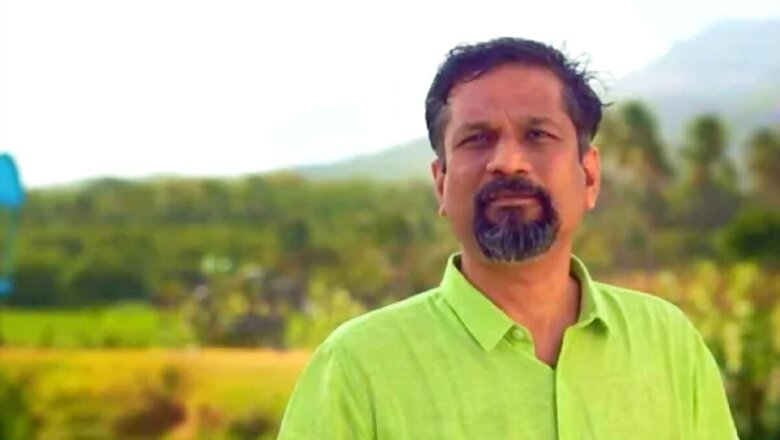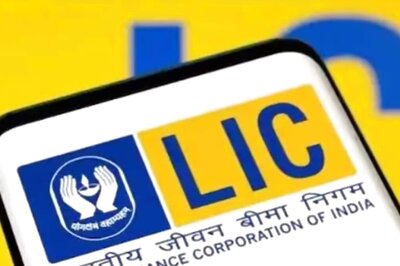
views
Zoho founder and CEO Sridhar Vembu launched a fiery attack on social media platforms such as Facebook, Twitter, and YouTube over their reluctance to comply with India’s new information technology (IT) rules, asserting that they have to operate according to the laws of the land and stop dictating terms.
Vembu compared these companies with the erstwhile East India Company that colonised India, warning that foreign- controlled platforms that are very dominant eventually have a life of their own and develop an agenda.
The “hypocrisy” of Facebook and Twitter
“These platforms are already doing censorship. Take the Covid issue when they censored all discussions related to its origins in the Wuhan lab. So for them to turn around and accuse the Indian government of something is just hypocritical. If they want to operate in our country, they have to operate according to our laws. They don’t get to make laws here,” Vembu told Moneycontrol in an interview.
Three years ago, Vembu moved from Silicon Valley to a village in Tenkasi district in Tamil Nadu— from where he runs the software product firm—with an aim to empower rural communities. Zoho, valued at over a billion dollars, is completely bootstrapped.
Vembu is a stout advocate of the government’s Atmanirbhar policy, averring that the country must develop its own tech know-how and reduce the dependence on foreign enterprises.
These views echoed in the interview with Moneycontrol on May 26.
“Sovereignty matters. India has to determine what is appropriate for our standards, our values, all of that. And we don’t want a Facebook or Twitter dictating terms to us,” he said.
India has a legally elected government, he said. “Even if we disagree with it, there are elections, courts, he said, adding that there is no need for a Facebook to determine what is acceptable discourse in India.
Vembu, who launched Zoho in 1996, said platforms such as Facebook, Twitter, and YouTube, have vested themselves with the power to determine what is acceptable speech, across the world on a variety of topics and that these are not guided by algorithms but by individuals.
IT rules come into effect
The Information Technology (Intermediary Guidelines and Digital Media Ethics Code Rules), 2021 was notified on February 25, that mandated significant social media firms (with over 50 lakh users) to appoint key officers in India, create systems for grievance redressal, and take down illegal content within a specified time frame. These companies were given three months’ time to comply with the rules.
Except for the Indian Twitter alternative Koo, other major platforms haven’t complied as yet. Facebook said it ‘aims to comply’ even as it continues to discuss issues with the Government. Separately, Facebook-owned WhatsApp has gone to court against a provision in the IT rules where it needs to break its encryption and reveal the originator of the message, stating that this will impact privacy.
Platforms will lose immunity
While the platforms will continue to operate after the deadline, they will lose their immunity as intermediaries under Section 79 of the IT Act and will be liable for third-party user-generated content under India’s civil and criminal laws.
Platforms do not have the accountability of elected governments, according to Vembu. “They hide behind their algorithms. If an executive from Twitter will testify in front of US Congress, should they not be actually asked to testify in front of the Indian Parliament?”
Neutral platforms or publishers?
Vembu, who was awarded a Padma Shri in January, said these platforms should be seen through the same lens as publishers as they determine what content is allowed and what can be removed.
“Are they a neutral carrier of information like a fibre optic provider? They’ve now started to actively control the information. So then why should they have immunity? This must be debated, there must be a legal mechanism, Parliament has to pass laws.”
Impact on India’s image
Some internet analysts have expressed concern that India’s image, for investment and democratic freedoms, will be affected in the event of coercive action against social media platforms.
Vembu disagreed. “Indians should stop acting like school kids looking for approval from school teachers. There is not some global school teacher that is approving our actions. The US State Department issuing reports on India, India should be issuing reports on the US too.”
He steered the conversation to events in China, where he said investors continue to go. “Would anybody argue that India is a less free country than China? Investors go because there’s money to be made, not because they think Twitter faces some trouble with the Indian government.”
Read all the Latest News, Breaking News and Coronavirus News here. Follow us on Facebook, Twitter and Telegram.




















Comments
0 comment